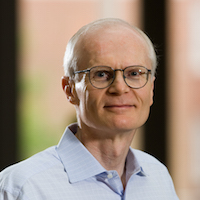Rural hospitals in states that did not expand Medicaid may face financial vulnerability
October 6, 2015
Policy makers may need to formulate strategies for maintaining access to care for rural populations in Medicaid nonexpansion states, finds a new study by three researchers associated with the University of North Carolina at Chapel Hill. The study appears in the most recent issue of Health Affairs.
Kristin L. Reiter, PhD, is an associate professor of health policy and management at the UNC Gillings School of Global Public Health and a research fellow at UNC’s Cecil G. Sheps Center for Health Services Research, where co-author Marissa Noles, PhD, formerly was a research assistant. George H. Pink, PhD, is the Humana Distinguished Professor in the Department of Health Policy and Management at the Gillings School, deputy director of the North Carolina Rural Health Research Center and a senior research fellow at the Sheps Center.
Their study aimed to describe the amounts of uncompensated care provided by rural hospitals in the year before any state Medicaid expansions went into effect.
Over half the rural hospitals in the study were located in states that had chosen not to expand Medicaid as of the date of data analysis. This means that a large proportion of rural hospitals could experience little to no growth in Medicaid revenues in coming years, while the costs of providing care for which full payment is not received will remain relatively unchanged.
Hospitals in states that have expanded Medicaid may see some reductions in charity care as patients gain access to Medicaid coverage. Hospitals in states where Medicaid is not expanded will likely not see a similar conversion of unpaid care to covered care.
At the same time, disproportionate share hospital payments – supplemental payments to hospitals that serve high numbers of Medicaid and uninsured patients – are projected to be reduced, potentially leaving many rural hospitals in a financial predicament.
As a percentage of patient revenue, the average amount of care provided for which payment was not received was higher for hospitals in states that had chosen not to expand Medicaid. This reveals that, although total dollar values of uncompensated care are lower for hospitals in non-expansion states, such hospitals carry a proportionally greater burden of uncompensated care.
The researchers also found evidence to suggest that hospitals located in non-expansion states were less profitable and were operating in markets with less-dense populations and more poverty compared to hospitals in Medicaid expansion states. This suggests that rural hospitals in non-expansion states may have less ability to absorb the cumulative impacts of imminent and proposed changes under the Affordable Care Act.
“This study raises a cautionary flag about the potential for financial pressure on rural hospitals in states not expanding Medicaid,” said Reiter. “It also provides some baseline data from which to monitor trends in hospital performance.”
The full article on these findings, titled “Uncompensated Care Burden May Mean Financial Vulnerability For Rural Hospitals In States That Did Not Expand Medicaid,” was published online Oct. 5 by Health Affairs.


